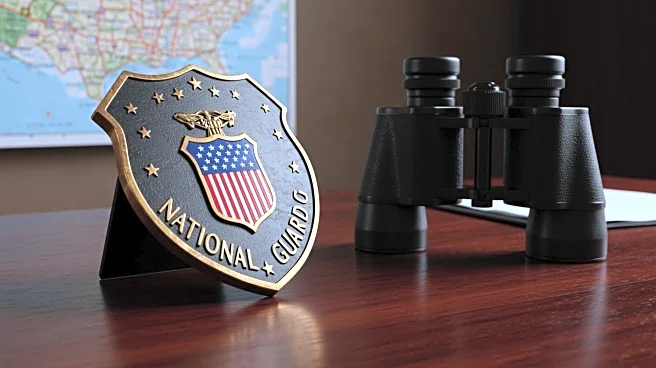What is the story about?
What's Happening?
Defense Secretary Pete Hegseth has clarified the role of the National Guard in Washington, D.C., following President Trump's executive order to deploy troops. Hegseth stated that the National Guard will act as 'force multipliers' for local and federal law enforcement but will not engage in direct law enforcement functions. The deployment aims to support efforts to restore law and order in the city, with Guardsmen from D.C. and other states expected to patrol the capital. Hegseth emphasized that the Guard will assist law enforcement and temporarily detain individuals if necessary.
Why It's Important?
The deployment of the National Guard in D.C. highlights the administration's focus on addressing crime in the capital. Hegseth's comments provide clarity on the Guard's role, aiming to reassure residents about the nature of their involvement. The decision reflects broader concerns about public safety and the use of military resources in urban areas. The move could impact the operational dynamics of law enforcement in D.C., influencing how federal and local authorities collaborate to address crime.
What's Next?
The duration of the National Guard's presence in D.C. remains uncertain, with Hegseth indicating it will be 'conditions-based.' The administration will assess the situation to determine the length of the deployment, potentially influencing future policy decisions. The deployment may face scrutiny from local officials and residents, prompting discussions on the balance between federal support and local autonomy in law enforcement.
Beyond the Headlines
The deployment raises questions about the use of military resources in civilian settings, particularly in addressing crime. Ethical considerations regarding the role of the National Guard in law enforcement may influence public discourse and policy development. The situation could set a precedent for future administrations, shaping how federal resources are leveraged in urban areas facing crime challenges.
















